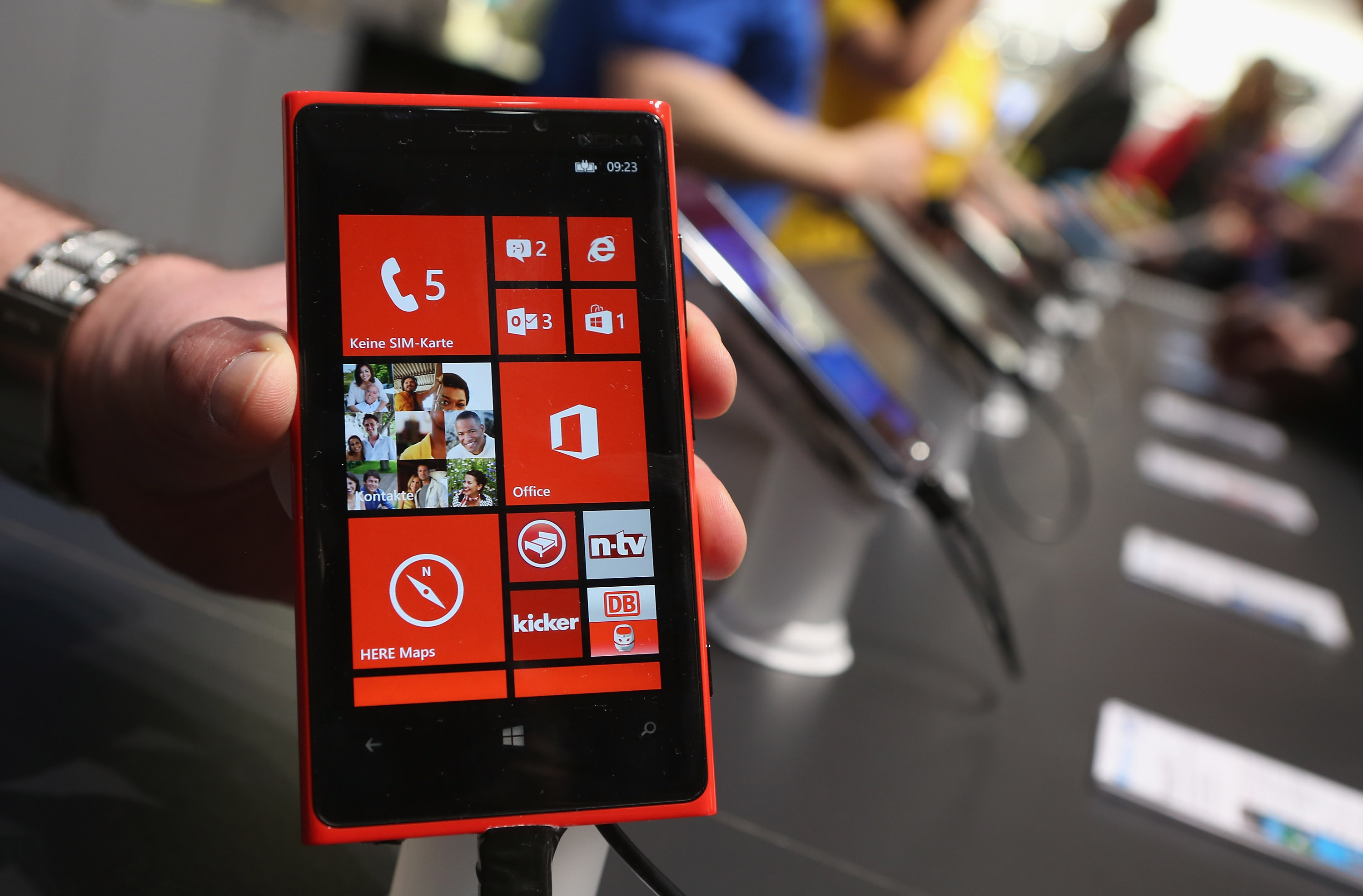Microsoft pulls the plug on Windows 10 Mobile
A low volume of users is one of many reasons for the platform’s demise, says software vice president

A free daily email with the biggest news stories of the day – and the best features from TheWeek.com
You are now subscribed
Your newsletter sign-up was successful
Microsoft is ditching its Windows 10 Mobile software platform, a year after the tech giant shut down its smartphone hardware division.
Joe Belfiore, Microsoft’s vice president of Windows, told fans on Twitter that “building new features [and hardware]” are not the company’s focus at the moment.
He did, however, say the firm would continue to support the platform by launching new security updates and fixing software bugs.
The Week
Escape your echo chamber. Get the facts behind the news, plus analysis from multiple perspectives.

Sign up for The Week's Free Newsletters
From our morning news briefing to a weekly Good News Newsletter, get the best of The Week delivered directly to your inbox.
From our morning news briefing to a weekly Good News Newsletter, get the best of The Week delivered directly to your inbox.
Microsoft’s smartphone platform has been “dead for more than a year”, says The Verge, but the firm has “never officially admitted it before”.
The company “gutted its phone business last year”, the website says, which resulted in “thousands of job cuts”.
The news of Windows 10 Mobile’s downfall could be down to the platform’s small “volume of users”, tweeted Belfiore, which prevented “most” third-party tech firms from investing in it.
But Engadget argues that the tech firm’s “slowness in responding to Apple and Google” may have been a factor in the demise of Windows 10 Mobile, along with an “inconsistent hardware strategy”.
A free daily email with the biggest news stories of the day – and the best features from TheWeek.com
Nevertheless, ZDNet says Microsoft will still be involved in the smartphone industry, as it plans to bring its Edge web browser – which is currently only available for computers running Windows 10 – to Apple iOS and Google Android devices.
The web browser allows users to share websites between their smartphone and desktop computer, the site says, as well as photos, apps and files.
-
 What to know before filing your own taxes for the first time
What to know before filing your own taxes for the first timethe explainer Tackle this financial milestone with confidence
-
 The biggest box office flops of the 21st century
The biggest box office flops of the 21st centuryin depth Unnecessary remakes and turgid, expensive CGI-fests highlight this list of these most notorious box-office losers
-
 The 10 most infamous abductions in modern history
The 10 most infamous abductions in modern historyin depth The taking of Savannah Guthrie’s mother, Nancy, is the latest in a long string of high-profile kidnappings
-
 Will AI kill the smartphone?
Will AI kill the smartphone?In The Spotlight OpenAI and Meta want to unseat the ‘Lennon and McCartney’ of the gadget era
-
 Why 2025 was a pivotal year for AI
Why 2025 was a pivotal year for AITalking Point The ‘hype’ and ‘hopes’ around artificial intelligence are ‘like nothing the world has seen before’
-
 Has Google burst the Nvidia bubble?
Has Google burst the Nvidia bubble?Today’s Big Question The world’s most valuable company faces a challenge from Google, as companies eye up ‘more specialised’ and ‘less power-hungry’ alternatives
-
 Is Apple’s Tim Cook about to retire?
Is Apple’s Tim Cook about to retire?Today's Big Question A departure could come early next year
-
 Microsoft pursues digital intelligence ‘aligned to human values’ in shift from OpenAI
Microsoft pursues digital intelligence ‘aligned to human values’ in shift from OpenAIUNDER THE RADAR The iconic tech giant is jumping into the AI game with a bold new initiative designed to place people first in the search for digital intelligence
-
 How the online world relies on AWS cloud servers
How the online world relies on AWS cloud serversThe Explainer Chaos caused by Monday’s online outage shows that ‘when AWS sneezes, half the internet catches the flu’
-
 iPhone Air: Thinness comes at a high price
iPhone Air: Thinness comes at a high priceFeature Apple’s new iPhone is its thinnest yet but is it worth the higher price and weaker battery life?
-
 Is the UK government getting too close to Big Tech?
Is the UK government getting too close to Big Tech?Today’s Big Question US-UK tech pact, supported by Nvidia and OpenAI, is part of Silicon Valley drive to ‘lock in’ American AI with US allies